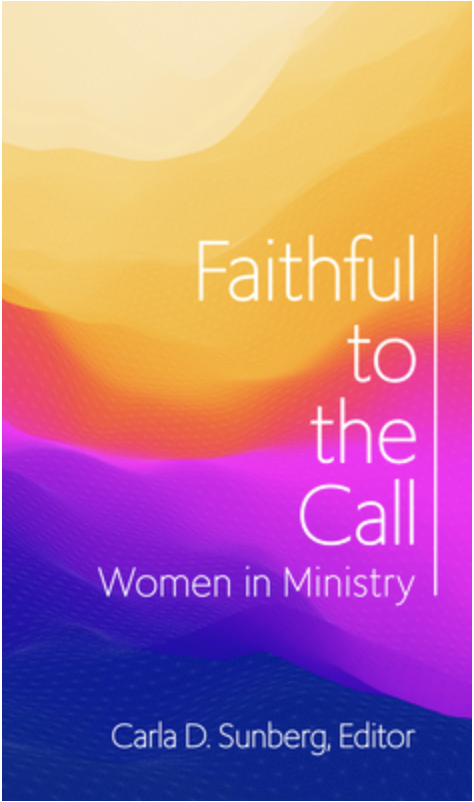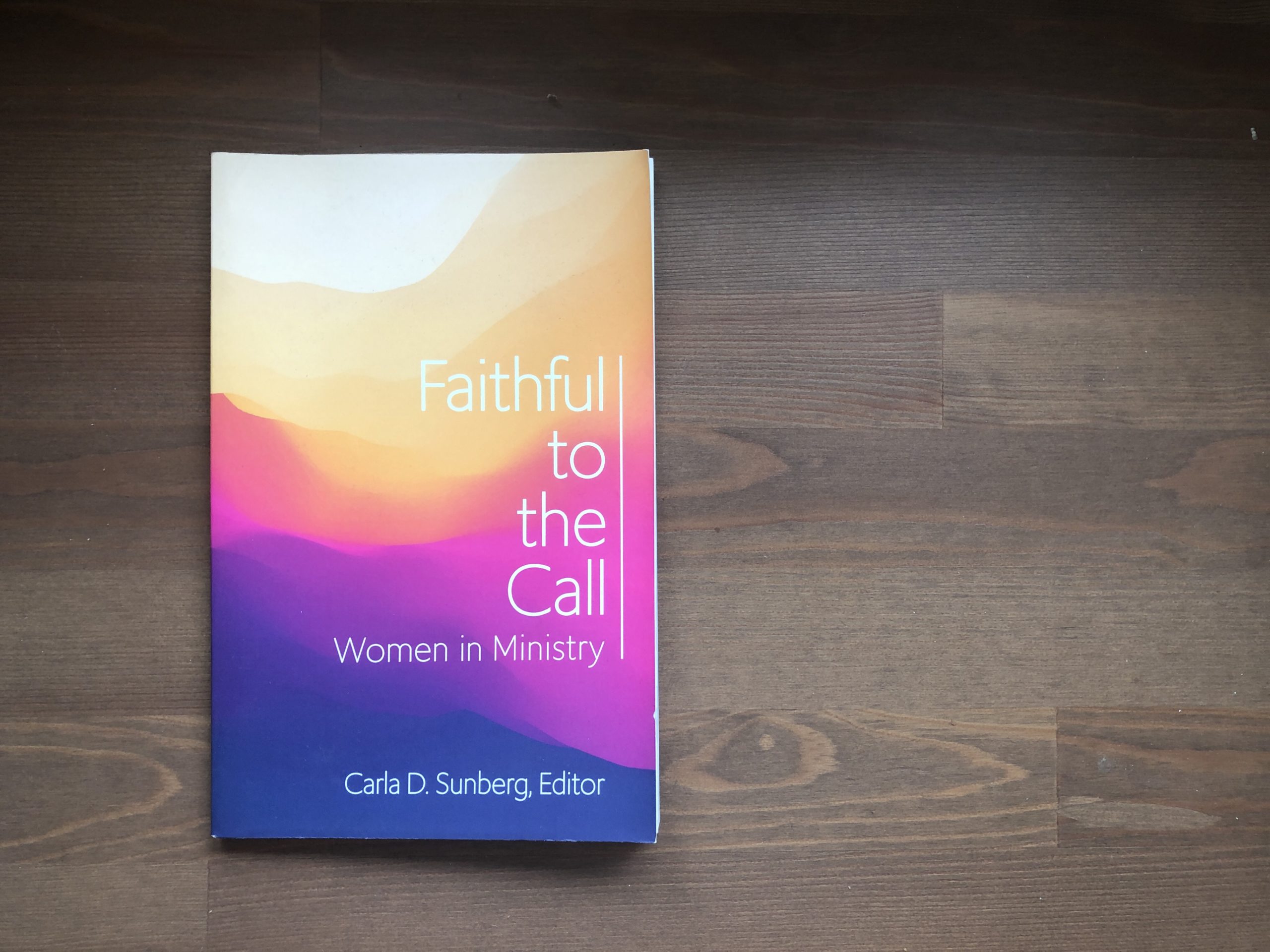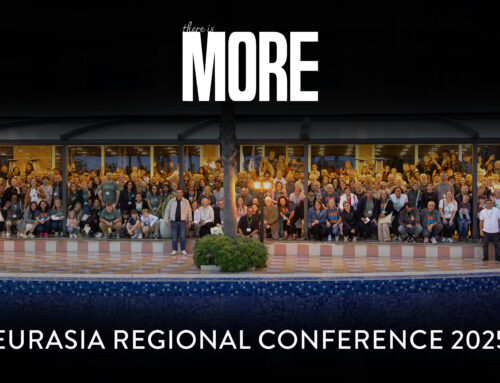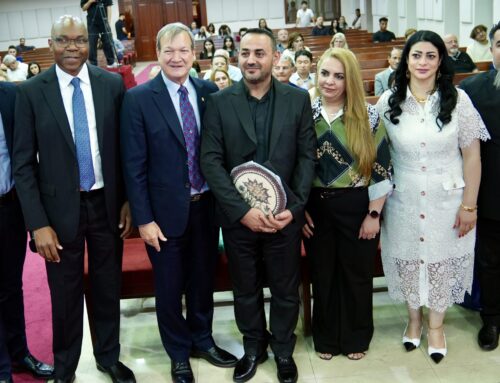 Book Review by Rev. Mária Gusztinné Tulipán – Rector of European Nazarene College.
Book Review by Rev. Mária Gusztinné Tulipán – Rector of European Nazarene College.
Faithful to the Call is a book on the topic of women in ministry with a collection of studies and reflections retelling the restoration story. The ten chapters are written from historical, biblical, theological, and practical perspectives by writers who have obeyed the call, each journey to obedience is inspiring, but are as different as their contexts and ministry areas. The book is a strong collective witness from authors serving as ordained ministers, teachers, theologians in the Wesleyan-Holiness tradition, ministering in the international Church of the Nazarene together in with male and female partners, faithfully serving a God calling men and women. Although, the book is written from within the Church of the Nazarene, the scope of the matter and the biblical, historical, theological and practical ministry responses provided are well beyond a denomination and can enrich the church of Christ.
The book is a significant addition to the existing but not extensive literature on women clergy, female ministry and church leadership roles within the Church of the Nazarene. Some of the books exploring the Church of the Nazarene’s understanding of ministerial calling and accounts of women clergy published are ‘Ordained Women in the Church of the Nazarene: The First Generation’ by Rebecca Laird (1993) is a historical record of pioneer women ministers; ‘The Call of Women in Ministry’ by Mary Rearick Paul (2011) is an exploration of the obstacles to women in ministry and a disclosure of the myths surrounding women leadership; and the more recent ‘Uncommon Virtues – Seven Saints Who Shaped Our Faith’ by D. Carla Sunberg and Richard Alan Hadley (2018) is a historical inspiration of the stories of seven revolutionary women, called the Cappadocian Mothers by the writer, and their influence on theology.
Faithful to the Call (2022) is the newest Nazarene title enriching the subject matter. Rev. Dr. Sunberg, the editor of the book considers the book an ‘effort to bring together our history and theology in a way that helps us understand why God would want to use women in service in the church, just like on the first resurrection day’.
As Rev. Dr. Gunter says in the Foreword, the matter was settled in 1894 ‘women are to be ordained for ministry and are suitable for all opportunities to which God has chosen and called them’. The authors are concerned about retelling the restoration story, reaffirming the historical foundations, educating and informing through the historical development, the biblical and theological understanding, and a diligent account of their own and of other historical women being faithful to the call. The authors of the essays collected in the book reaffirm both the biblical, theological and historical foundations for women’s place in ordained ministry and in the leadership roles in the church. Thus, it is written about and for all those who faithfully follow the One calling; about and for women and men who were and are obedient to the call, about and for men and women partnering in the mission, answering the call by fulfilling the ministry opportunities and needs.
This ten-chapter/perspective work brings together a thorough presentation of how women in ministry can be understood from a historical, biblical and practical perspective. The book has been written by multiple writers: current church leaders, theologians, biblical scholars and practitioners, and from a solid Wesleyan-Holiness perspective. Thus, one of the unique features of the book is the authors themselves. It is up-to date in its recollections of historical examples, starting from the beginning of the biblical account, it enriches the readers with the most recent and global examples of the women witnesses of Christ, those fearless, called, and brave enough to be faithful to the call. It is an account for the heavenly call, about the partnering of men and women in ministry. As the editor states: “When those partnerships are broken or strained, the church itself suffers.”
The Lord calls, the church recognizes. The former happens as the book testifies for it, the later needs improvement, therefore, the book invites and inspires churches, districts, church leaders and Nazarene education leaders to take the next steps.
Why to revisit the theme ‘women in ministry’? The authors pose different questions raised in their field of study, and name oppositions they face(d) from their ministry experience. It can help readers to take their own questions into account, identify the doubts and oppositions within their own contexts, and become educated and informed by the abundant and powerful historical, biblical, theological, and practical evidence offered in the book.
The strength of the book is that it is written from a global perspective. It is inspiring to read from writers from various world areas. Among the authors are Rev. Dr. Nina Gunter, Rev. Dr. Carla D. Sunberg, Rev. Dr. Diane Leclerc, Rev. Dr. Jacob Lett, Rev. Dr. Svetlana Khobnya, Rev. Dr. C. Jeanne Orjala Serrão, Rev. Dr. Sarah Coleson Derck, Rev. Selena Freeman, Rev. Phumzile Phago, Rev. Cara Shonamon, Rev. Dr. Tammy Carter, and Rev. Dr. David Downs. The book is written with the global church in mind, and attempts to bring international examples, yet there are more voices that need to be heard and more stories to be told. Hopefully, the book is only reopening of the case, and Nazarenes from other world areas can tell their stories to give a fuller picture and enrich the recollection of women in ministry.
The first two chapters are devoted to the theological perspective and the historical account of women in ministry. Chapter 1 ‘The Historical Presence of Women in the Church’ by Rev. Dr. Diane Leclerc gives a panorama picture of women in church leadership roles from the early church through the medieval times, and to the Holiness Movement, leading to a long history of Nazarene women clergy. History shows how the practical application of women in ministry and full equality arises from the Wesleyan-Holiness theology itself.
In chapter 2 ‘Wesleyan-Holiness Foundations for Women in Ministry’, for Rev. Dr. Jacob Lett one of the questions is ‘whether human social markers like gender can exclude a person from a particular type of pastoral service, like ordained ministry’.[1]Lett sees the need to reopen the case and blames non-Wesleyan spirit and theology for a change in thinking and practice in the second half of the twentieth century. Lett revisits the women in church leadership and ordination theme looking at the bold statement of the Nazarene Manual, examining the theological concept of “apostolicity”, and reminding of the foundations that have informed the Wesleyan-Holiness movement.
There are three chapters devoted to the biblical understanding of women in ministry, providing strong biblical evidence for women clergy and church leadership roles: a chapter of a New Testament survey, one devoted to understanding Pauline passages, and a chapter on the Old Testament survey of the theme.
In chapter 3, ‘The Place of Women in Ministry in the New Testament’, the purpose of Rev. Dr. Svetlana Khobnya is to offer counterarguments through the analysis of the New Testament affirmation of the position of women serving together as equal to men for the sake of the gospel, responding to those with questions in spite of the overwhelming evidence of women participating alongside men in ministry. She focuses her response on the overview of the New Testament as a whole, calling the reader to the discipline of looking at the wider context and the whole narrative. The reader is invited to an overview of Scriptural evidence, the gender dysfunction restored in Christ, to the rereading of the discipleship narrative as seen ‘the dynamic activity of both men and women’, realized in the early church with women being part of the worship communities sharing the same gifts and ministering together with men as one body, listed among the saints and referred to as coworkers by Paul and other writers. The author offers an egalitarian perspective focusing on “the totality of scriptural evidence that testifies to God—who, in Christ and Spirit, calls both men and women to lead the church.”[2], and the church seen as a redemptive community. This chapter is an appeal to note the positive threads in the New Testament.
In chapter 4, ‘Tackling the Challenging Passages in the New Testament’ Rev. Dr. C. Jeanne Orjala Serrão seeks to address the uncertainty and hostility toward women in leaders, by examining controversial passages in the New Testament. She provides basic principles for the interpretation of difficult biblical texts to avoid out of context interpretations based on ‘culturally bound proof-texts’ and the interpretations of biased translations and commentaries from later periods. Serrão warns against using cloudy passages to counter Paul’s clear affirmation of women in ministry leadership in other passages. She calls attention to Paul’s countercultural calls, and offers plenty of examples toward a better reading of Paul.
Chapter 5 ‘Wisdom from the Old Testament’ by Rev. Dr. Sarah Coleson Derck gives a thorough a survey of women in ministry and authority in the whole Old Testament narrative. The reader will find a comprehensive and surprisingly rich picture of leadership roles filled by women through the centuries. ‘From her role as co-regent over all creation to prophetic and sanctuary ministry, from professional skills to political power to family leadership, woman is a regular partner in the work of God among the people of God.’[3]
The next five chapters invite us into the transparent, personal accounts. Four chapters are written by women practitioners about their journey to the acceptance of their call, and the account of their call being accepted by the church; and the closing chapter is from a district superintendent’s perspective and his dealings with local congregations and Nazarene women clergy.
In chapter ‘Challenges and Blessings of Church Planting’, the reader is invited into the personal story of Rev. Selena Freeman, also a church planter—in spite of her plans—as she experiences the ‘ordinary obedience and ‘destiny moments colliding’. Through a woman’s eyes, receiving and fulfilling the call, we can see and hear the challenges and blessings of church planting.
Through the ministry reflection of Rev. Phumzile Phago in chapter ‘Serving God with Joy’, the reader can feel and hear, how one is called to serve God not just for a time but to finish well, that is, serving God with joy. Phago affirms that we are saved to serve, and in order to finish well there are some strategies to be followed by those serving in ministry. By finishing well, the author means the ministry legacy one leaves behind. The author calls to a ‘generational thinking’ in ministry.
In ‘Synergy in Partnership’, Rev. Cara Shonamon, herself a co-lead pastor, shares models of partnership in ministry form the multigenerational rich ministry history of her family. It is inspiring to read the examples of partnership of men and women across the various time periods and independent of societal and church trends. The writer calls to ‘synergy in partnership’: women and men serving together as a team in ministry become greater and stronger than the two apart, with joy and beauty to be found in diverse ministry teams.
In chapter 9 ‘Walking through a Crisis in Ministry’, Rev. Dr. Tammy Carter gives us a glimpse into the reality of women living through crisis in ministry and the support system the church leaders can offer. The chapter is filled with encouragement, words of support and comfort, the words of one who has walked through her crisis and remined in ministry, faithful to the call. This chapter is a reminder that accepting the call of female church leaders is not sufficient, the affirmation needs to include the support for those going through crisis while in ministry.
The closing chapter ‘Becoming a Champion’ by Rev. Dr. David Downs reflects on the challenge of women in ministry from a church leader’s perspective and calls the readers to champion ‘a cause close to God’s heart’. The book ends on a very practical note: the affirmation of the positive changes in the Church of the Nazarene, improvement in theological education with the integration of theology of women in ministry into the prescribed course of study for Nazarene pastors, and the call to teaching the church. The district superintendent offers a list of practical suggestions for local churches and districts for championing women in ministry. They are small steps for church leaders, districts, congregations to take on the responsibility and affirm the call of gifted women. This chapter can be insightful for church boards praying for pastors, students who are in ministry preparation, educators and ministerial studies boards, those girls, women with a divine call, and men who can become supportive champions.
The value of the book lies in reopening the case, the questions, the doubts and oppositions to female in ministry and women clergy identified, collected and addressed. The objectivity of the research essays in the first five chapters is a great value, and equally is the subjective of the account of the practitioners. The book becomes a great tool through the balancing of the biblical, theological historical essays with ministry reflections of practitioners.
The book can be used as a great teaching tool for theology students, congregations; and church leaders, clergy, church boards and ministerial boards can become better informed, hopefully women become inspired and encouraged in their pursue of the call, strengthened for the challenges, male clergy and church leaders challenged to become better supporters.
Obviously, the purpose of the writers is not just for the mind to examine questions on the theme of women in ministry, not just for the heart with the testimonies of those who live and minister among us or went before us, but also for our feet and hands to act on the theology that is ours – living out without any apology who we are – Wesleyan-Holiness people: embracing our identity, refreshing our knowledge of our history, reclaiming our Wesleyan-Holiness theology.
The reader may be inspired and informed by the biblical, historical and theological perspective, by the personal journeys and life experiences, and best practices. The reader may be touched by the transparency, the vulnerability of those sharing the account of their journey to the call, by their bravery in the midst and in spite of the challenges, and the strength in weakness regardless of the proximity in theological positions.
The book will fulfill its mission if more women will ‘Be not disobedient to the heavenly calling.’[4], and if more men will become champions, supporters, and encouragers to help all men and women live a life of obedience to the call in ministry partnership by God’s design, restored by Christ and empowered by the Spirit.
Faithful to the Call is not only a recollection of the restoration story—the creation and restoration of men and women ministering in partnership—but a call to the readers to bind together of what was not meant to be separated.
Recommendation:
To those men and women, who have been part of the Wesleyan-Holiness tradition, faithful and insightful and contributed to our history reflecting the restoration of all creation. To those who are on the way of understanding. And to those who still feel uncomfortable. And certainly, to those women who still have circumstance in the way, yet they want to obey the call; and to those who are still wondering whether there will be a place for them in ministry.
[1] Lett, Jacob. “Wesleyan-Holiness Foundations for Women in Ministry” in Faithful to the Call: Women in Ministry. Edited by Carla Sunberg. The Foundry Publishing, 2022. p. 23.
[2] Khobnya, Svetlana. “The Place of Women in Ministry in the New Testament” in Faithful to the Call: Women in Ministry. Edited by Carla Sunberg. The Foundry Publishing, 2022. p. 65.
[3] Coleson-Derck, Sarah. “Wisdom from the Old Testament” in Faithful to the Call: Women in Ministry. Edited by Carla Sunberg. The Foundry Publishing, 2022. p. 44.
[4] John Wesley’s statement is cited as a motto at the beginning of the book.
Rev. Mária Gusztinné Tulipán has been serving as the as the Rector of European Nazarene College since 2020. She was previously the Hungary Learning Centre Administrator and EuNC Cluster Chair for Ministerial Skills. Tulipán has also served as a pastor in Budapest, Hungary.




